Elizabeth Des Chenes, Managing Editor
2012 Greenhaven Press, a part of Gale, Cengage Learning
Gale and Greenhaven Press are registered trademarks used herein under license.
For more information, contact:
Greenhaven Press 27500 Drake Rd.
Farmington Hills, MI 48331-3535
Or you can visit our Internet site at gale.cengage.com.
ALL RIGHTS RESERVED
No part of this work covered by the copyright herein may be reproduced, transmitted, stored, or used in any form or by any means graphic, electronic, or mechanical, including but not limited to photocopying, recording, scanning, digitizing, taping, Web distribution, information networks, or information storage and retrieval systems, except as permitted under Section 107 or 108 of the 1976 United States Copyright Act, without the prior written permission of the publisher.
For product information and technology assistance, contact us at:
Gale Customer Support, 1-800-877-4253.
For permission to use material from this text or product, submit all requests online at www.cengage.com/permissions .
Further permissions questions can be emailed to .
Articles in Greenhaven Press anthologies are often edited for length to meet page requirements. In addition, original titles of these works are changed to clearly present the main thesis and to explicitly indicate the author's opinion. Every effort is made to ensure the Greenhaven Press accurately reflects the original intent of the authors. Every effort has been made to trace the owners of copyrighted material.
Cover Image Molly Riley/Reuters
LIBRARY OF CONGRESS CATALOGING-IN-PUBLICATION DATA
Free speech and expression / Noel Merino, book editor. p. cm. -- (Teen rights and freedoms)
Includes bibliographical references and index.
ISBN 978-0-7377-5826-9 (hardcover : alk. paper)
1. Freedom of speech--United States--Popular works. 2. College students--Legal status, laws, etc.--United States--Popular works. 3. College students--Civil rights--United States--Popular works. 4. High school students--Legal status, laws, etc.--United States--Popular works. 5. High school students--Civil rights--United States--Popular works. I. Merino, Noel.
KF4772.F736 2008 342.7308'53--dc22
2011015671
Printed in the United States of America 1 2 3 4 5 6 7 15 14 13 12 11
Contents
American Civil Liberties Union
The American Civil Liberties Union recounts many of the key struggles in the United States advancement of freedom of expression and emphasizes its importance.
Emily Buss
A law professor illustrates the way childrens right to freedom of expression differs from that of adults by considering several Supreme Court cases on the issue.
The Supreme Courts Decision
Robert H. Jackson
The US Supreme Court determines that, because of their right to free expression, students are not allowed to be disciplined for failing to salute the flag and recite the pledge.
The Supreme Courts Decision
Abe Fortas
The US Supreme Court rules that students must be allowed to express their opinions as long as doing so does not cause substantial disorder or interfere with school activities.
The Supreme Courts Decision
Warren E. Burger
The US Supreme Court decides that the right to free speech does not prevent schools from limiting student speech that is disruptive because of its lewdness.
The Supreme Courts Decision
Byron White
The US Supreme Court rules that schools have a right to control student speech when it is associated with an activity that is part of the school curriculum.
James Tidwell
A journalism professor praises a Sixth Circuit Court of Appeals decision that college students cannot have their freedom of expression limited in the same manner as high school students.
The Supreme Courts Decision
John Roberts
The US Supreme Court rules that student expression that appears to advocate illegal drug use is not protected under the First Amendment.
Personal Narrative
Perry A. Zirkel
A professor of education and law interviews three former plaintiffs from important First Amendment cases addressing student speech.
The Circuit Courts Decision
Stephen Roy Reinhardt
A circuit court determines that it does not violate a students First Amendment right to limit expression that interferes with the rights of other students.
Greg Beato
A writer contends that student speech on T-shirts at high school is an important exercise of free expression under the First Amendment and ought to be embraced.
Theresa Chmara
A lawyer contends that the First Amendment right to free expression that is extended to students includes the right of access to information, which must be protected by school libraries.
Anita Ramasastry
A law professor contends that although the First Amendment protects most online expression, schools may restrict some student speech, even if it occurs off campus.
Shannon P. Duffy
A legal writer discusses two recent court rulings regarding the First Amendment rights of students to express them selves online and claims that the two rulings conflict.
Personal Narrative
Stephen J. Wermiel A professor of law and government interviews Mary Beth Tinker, one of the student plaintiffs in Tinker v. Des Moines Independent Community School District (1969), forty years after the ruling.
Foreword
In the truest sense freedom cannot be bestowed, it must be achieved.
Franklin D. Roosevelt, September 16, 1936
T he notion of children and teens having rights is a relatively recent development. Early in American history, the head of the householdnearly always the fatherexercised complete control over the children in the family. Children were legally considered to be the property of their parents. Over time, this view changed, as society began to acknowledge that children have rights independent of their parents, and that the law should protect young people from exploitation. By the early twentieth century, more and more social reformers focused on the welfare of children, and over the ensuing decades advocates worked to protect them from harm in the workplace, to secure public education for all, and to guarantee fair treatment for youths in the criminal justice system. Throughout the twentieth century, rights for children and teensand restrictions on those rightswere established by Congress and reinforced by the courts. Todays courts are still defining and clarifying the rights and freedoms of young people, sometimes expanding those rights and sometimes limiting them. Some teen rights are outside the scope of public law and remain in the realm of the family, while still others are determined by school policies.
Each volume in the Teen Rights and Freedoms series focuses on a different right or freedom and offers an anthology of key essays and articles on that right or freedom and the responsibilities that come with it. Material within each volume is drawn from a diverse selection of primary and secondary sources journals, magazines, newspapers, nonfiction books, organization newsletters, position papers, speeches, and government documents, with a particular emphasis on Supreme Court and lower court decisions. Volumes also include first-person narratives from young people and others involved in teen rights issues, such as parents and educators. The material is selected and arranged to highlight all the major social and legal controversies relating to the right or freedom under discussion. Each selection is preceded by an introduction that provides context and background. In many cases, the essays point to the difference between adult and teen rights, and why this difference exists.

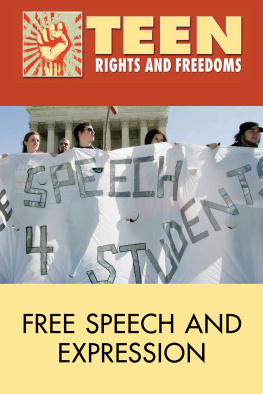
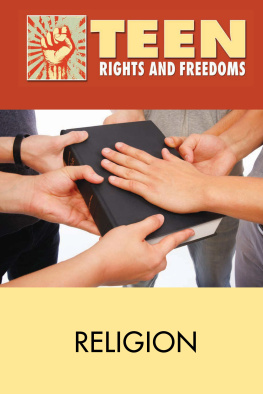
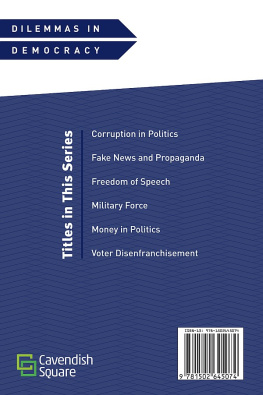
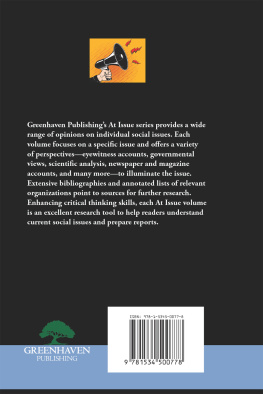
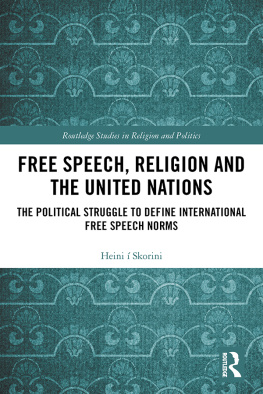
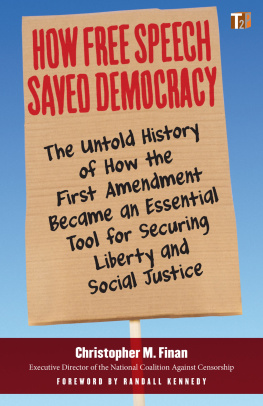

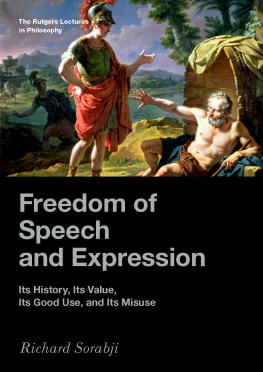
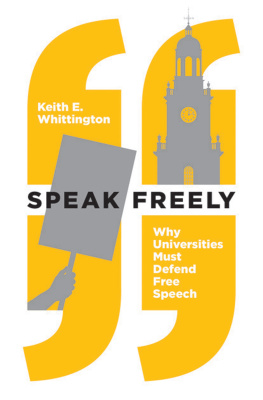
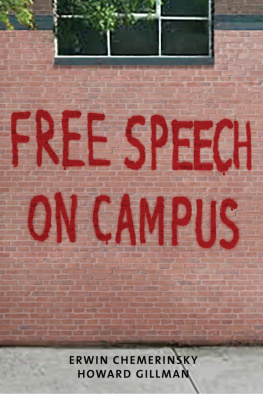
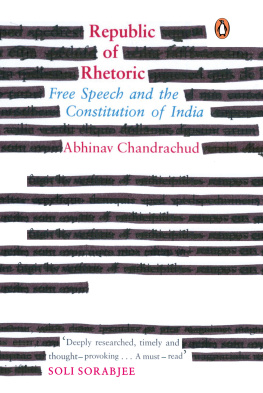
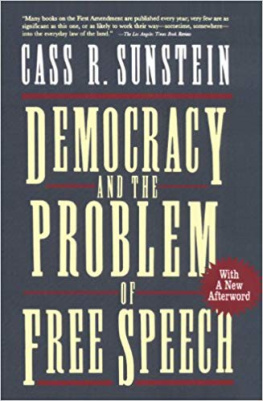


.jpg)
.jpg)